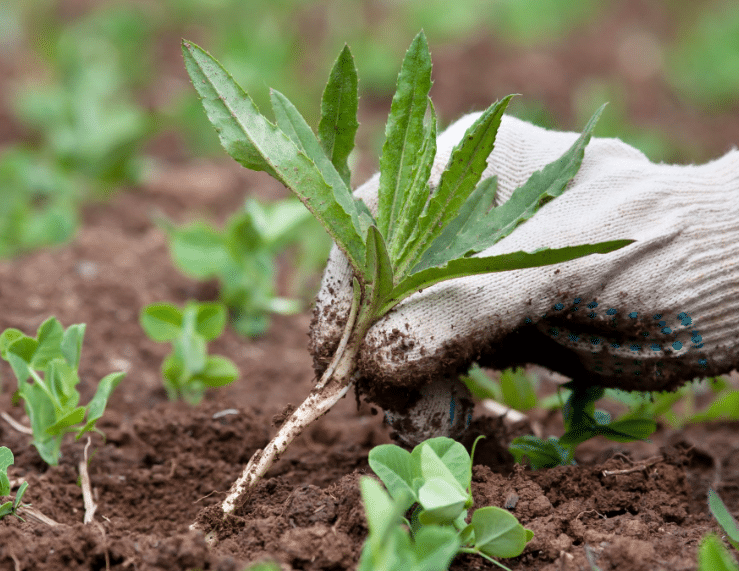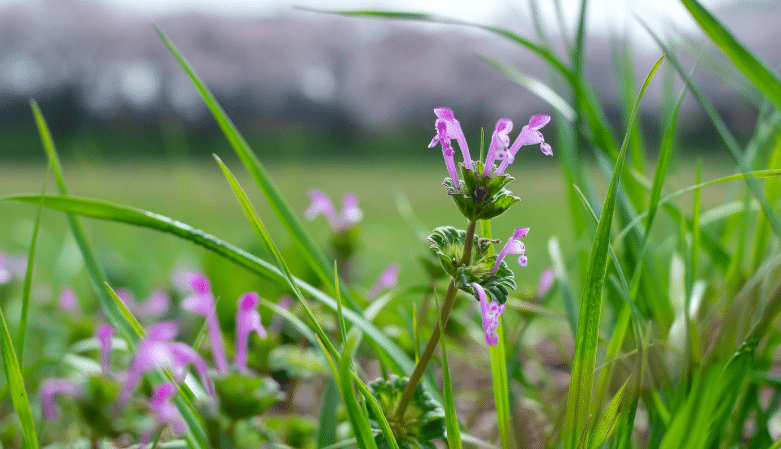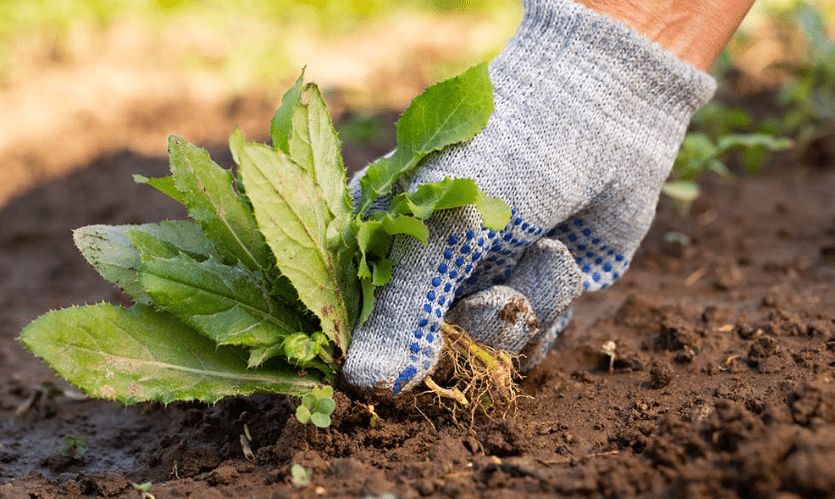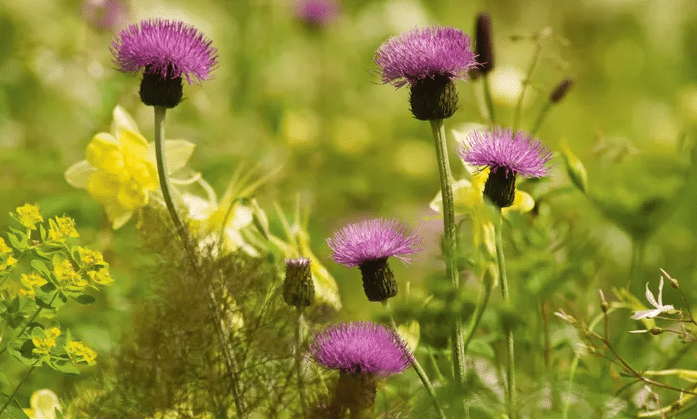A once vibrant and lush garden, filled with blooming flowers, succulent fruits, and verdant foliage, slowly succumbs to a growing menace. Unseen initially, it’s a silent invader that creeps in, often unnoticed, gradually asserting dominance and causing an explosion of green chaos. This menace is none other than weeds. When left uncontrolled, they can quickly overrun a garden, causing a variety of detrimental effects. This post aims to provide insights into the various consequences of skipping weed control in your garden. Because by understanding these consequences, you can better appreciate the importance of regular and effective weed management.
Contents
- 1 Weeds: The Unwanted Guests
- 2 How Weeds Find Their Way Into Your Garden
- 3 Weed Growth: Competing With Your Plants
- 4 Weeds And The Destruction Of Garden Aesthetics
- 5 Weeds: Harboring Garden Pests And Diseases
- 6 Weed Invasion: Impact On Biodiversity
- 7 The Economic Cost Of Skipping Weed Control
- 8 Weed Control: An Integral Part of Garden Management
- 9 Skipping Weed Control: A Long-Term Problem
- 10 Skipping Weed Control Can Be A Real Problem!
Weeds: The Unwanted Guests
Weeds, by definition, are plants that are considered undesirable within a particular context or setting. In a garden, they are the uninvited guests that don’t just visit but insist on staying, spreading, and thriving. They come in all shapes and sizes, from tiny ground-hugging clovers to towering thistles, and are characterized by their hardy nature and rapid reproduction rate. Most importantly, they compete aggressively for resources, often at the expense of your preferred plants.
A major reason why weeds are such a nuisance is their ability to adapt to a wide range of conditions. Many weeds have evolved mechanisms to survive even in harsh conditions, allowing them to thrive where other plants struggle. This resilience, coupled with their propensity for rapid growth and reproduction, makes them a formidable adversary in the fight for garden supremacy.
How Weeds Find Their Way Into Your Garden
Weeds are incredibly adept at spreading and establishing themselves in new areas. They can be introduced into your garden in numerous ways: wind-borne seeds can be blown in from afar; birds and other animals can inadvertently bring weed seeds stuck on their bodies or through their droppings; even the soil or compost you bring in might be contaminated with weed seeds. Once introduced, weeds have the potential to rapidly colonize the available space, given their prolific reproduction capability.
Interestingly, weed seeds can lie dormant in the soil for years, even decades, waiting for the right conditions to germinate. This makes weed control an ongoing battle for gardeners. Even when you think you have eradicated weeds, their seeds may still be lurking in the soil, ready to sprout at the first opportunity. It’s an invasion from within and from outside, a continuous process that necessitates regular and effective weed control measures to maintain a healthy, weed-free garden.
Weed Growth: Competing With Your Plants
One of the most immediate and noticeable consequences of ignoring weed control is resource competition. Weeds, like all plants, need sunlight, water, and nutrients to grow. Unfortunately, they are often much better equipped to compete for these resources than the plants you intentionally nurture in your garden.
Take sunlight, for example. Many weeds grow more rapidly than garden plants, quickly outpacing them in the race toward the sun. As a result, your flowers or vegetable plants can end up overshadowed by taller, fast-growing weeds, suffering from reduced light exposure. Similarly, weeds’ often extensive root systems can outcompete garden plants for water and nutrients in the soil, leading to poor growth or even death of the latter. The competition is fierce and unrelenting, and without effective weed control, your garden plants stand little chance.
Weeds And The Destruction Of Garden Aesthetics
Anyone who has spent time and effort to design and cultivate a garden knows the value of aesthetics. A garden is more than just a collection of plants; it’s a curated space that brings joy to the eyes and tranquility to the mind. But unchecked weed growth can swiftly turn this picture of beauty into a disarrayed mess. Overgrown weeds can smother flower beds, tangle with ornamental plants, and break the visual harmony of your garden.
The effect is not only visual. A garden overwhelmed by weeds can become less inviting and harder to navigate. The paths may become overgrown, the flower beds less distinct, and the overall space less usable. The peaceful retreat you had imagined can quickly become a source of frustration and disappointment. In essence, weeds can rob your garden of its aesthetic appeal and functionality, underlining the importance of timely weed control.
Weeds: Harboring Garden Pests And Diseases
Weeds can act as a haven for various pests and disease-causing organisms that can harm your garden plants. Many insects, rodents, and other pests use weeds as a source of food and shelter. These pests can then move on to your garden plants, causing damage and spreading diseases. Additionally, some weeds can directly host plant diseases, acting as a reservoir for pathogens that can infect your plants.
For instance, certain types of weeds can host fungi that cause diseases in vegetable crops. When these weeds are present in or near a vegetable garden, they increase the risk of disease outbreaks. Similarly, some weeds can host pests like aphids, which can then infest garden plants, leading to plant stress, decreased growth, and even death. By allowing weeds to thrive in your garden, you are potentially inviting a host of other problems that can further harm your plants.
Weed Invasion: Impact On Biodiversity
Unchecked weed growth can also impact the biodiversity of your garden. While a garden might initially have a diverse range of plants, an invasion of aggressive weeds can reduce that diversity over time. Weeds can outcompete native or desired plants for resources, eventually leading to a decrease in plant variety. This change can affect not just the plant community but also the insects, birds, and other wildlife that depend on these plants for food and shelter.
Moreover, the decline in plant diversity can have cascading effects on pollinators like bees, butterflies, and hummingbirds. These creatures rely on a diverse array of plants for nectar and pollen. If aggressive weeds displace these food sources, it can lead to a decline in pollinator populations. This, in turn, affects the pollination of your garden plants, potentially leading to reduced fruit and seed production.
The Economic Cost Of Skipping Weed Control
Ignoring weed control in your garden can also have significant economic consequences. Uncontrolled weed growth can lead to the loss of valuable plants, decreased productivity in vegetable or fruit gardens, and increased costs for restoring the garden to its former state. The expenses associated with replacing lost plants and repairing the damage can quickly add up, making neglecting weed control a costly mistake.
Contrast this with the cost of preventive weed control, which might involve regular weeding, mulching, and perhaps the use of some eco-friendly weed control products. These costs are typically much lower than the cost of restoring a garden overrun by weeds. Additionally, preventive weed control can help maintain your garden’s productivity, ensuring a steady supply of fruits, vegetables, or flowers. As such, investing in regular weed control is not just good for your garden’s health but also for your wallet.
Weed Control: An Integral Part of Garden Management
Weed control is not just a one-off task but an integral part of ongoing garden management. Regular and effective weed control measures can prevent weeds from establishing, reduce their impact, and maintain the health and aesthetics of your garden. This can involve a combination of strategies, from manual weeding and mulching to the use of environmentally-friendly herbicides. It’s also important to remember that effective weed control involves more than just removing visible weeds.
Since many weeds can regrow from small pieces of root left in the soil, it’s crucial to remove the entire weed, including the root. Additionally, preventing weed seeds from spreading and germinating is key. This can involve practices like removing weeds before they go to seed, using mulch to prevent seed germination, and ensuring that any compost or soil brought into the garden is free of weed seeds.
Skipping Weed Control: A Long-Term Problem
The consequences of ignoring weed control in your garden are not just immediate but can persist in the long term. Weeds have a notorious ability to recover and multiply quickly, if not completely eradicated, making them a recurring problem. Moreover, as discussed earlier, some weed seeds can remain dormant in the soil for years, waiting for the right conditions to germinate and start the cycle all over again.
Allowing weeds to take hold in your garden can make future weed control efforts much more difficult. The longer you wait to take action, the harder it will be to regain control over your garden. Unchecked weed growth can lead to a weed-dominated garden, where restoring the desired plant community can be a daunting task. Therefore, addressing weed issues promptly and effectively is crucial to prevent long-term problems.
Skipping Weed Control Can Be A Real Problem!
Throughout this post, we’ve examined the numerous consequences of skipping weed control in your garden. From competing with your plants for resources, destroying the aesthetics of your garden, and harboring pests and diseases, to impacting biodiversity and imposing economic and health costs, the impact of unchecked weed growth is far-reaching. However, the efforts to maintain a weed-free garden offer rewards!








